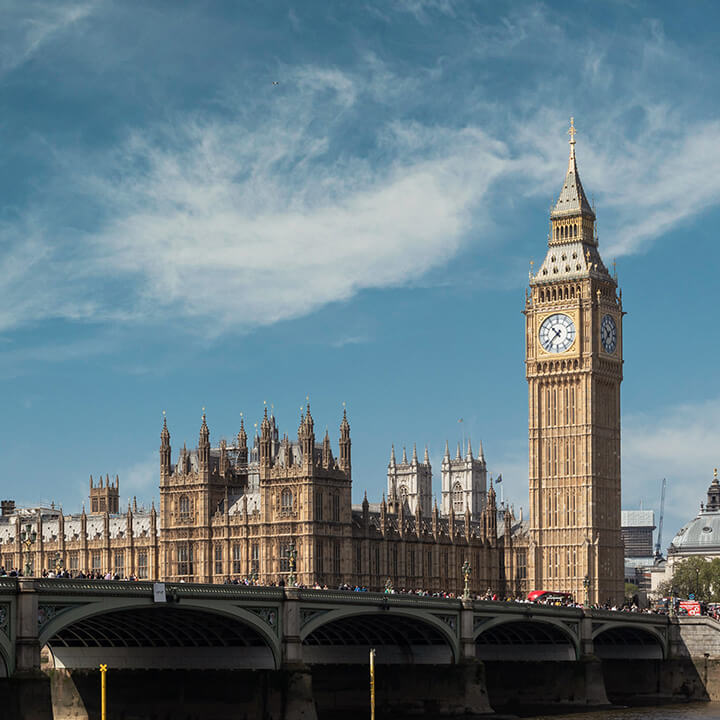The Sky is not the limit when it comes to broad trade mark specifications
15th November 2024
“This week’s judgment from the Supreme Court serves as a warning to trade mark owners who file unnecessarily broad trade mark specifications in order to police the use of generic terms by third parties. Furthermore, the practice of ‘ever-greening’ is likely to face much harsher scrutiny by the courts in future trade mark infringement cases where bad faith is alleged.”

Firstly, this article looks to reflect on the three main issues arising in this appeal which are as follows:
- Factors to be taken into consideration when assessing whether or not a trade mark application has been made in bad faith;
- Whether SkyKick had indeed infringed Sky’s registered trade marks; and
- Whether UK Courts have jurisdiction to hear legal proceedings involving EU trade marks following Brexit.
Interestingly, following the acquisition of SkyKick by a third party and prior to this judgment, the parties had managed to reach a worldwide settlement. Consequently, an application had been made to withdraw the appeal. However, the Supreme Court refused this application. Firstly, on the basis that the appeal raised a number of issues which are of general public importance and secondly, due to a statement from the Comptroller-General that it would be desirable for the court to give judgment in light of the important issues raised.
More importantly, however, we look to set out the practical implications of the Supreme Court’s findings for trade mark proprietors going forward and how we at Walker Morris can help.

Factors to be taken into consideration when assessing whether or not a trade mark application has been made in bad faith
The Supreme Court disagreed with the Court of Appeal’s decision to overturn the High Court’s initial ruling on this issue and unanimously found that Sky’s trade marks had been partially filed in bad faith. Whilst it was acknowledged that the mere registration of a lengthy trade mark specification is not conducive to a filing having been made in bad faith, it can be indicative where the goods and/or services listed in the specification are so far removed from the business of the proprietor that they were realistically never intending to use the trade mark for such goods and/or services. Some examples provided from Sky’s specifications included “bleaching preparations” (Class 3, EU992 and UK604) and “whips” (Class 18, EU352, EU619, EU992 and UK604).
The Supreme Court further concluded that problems can arise where proprietors seek to file a trade mark application and the specification for said application includes general terms to describe the goods and/or services that it wishes to protect. It would be anomalous to conclude that bad faith cannot arise simply because at the time of filing, the proprietor had an intention to use the trade mark for some of the goods and/or services included within these general terms. To do so would put proprietors who use specific and appropriate sub-categories in their specifications for the same goods and/or services in a less favourable position.
It was noted that, when assessing bad faith, particular consideration must also be given to the applicant’s intention when filing the application. This is a subjective matter which must be decided with reference to the objective circumstances of the case. Furthermore, one does not have to prove that an application has been filed in order to target a specific third party in order to demonstrate bad faith.
Whether SkyKick had indeed infringed Sky’s registered trade marks
Whether or not SkyKick had infringed Sky’s registered trade marks came down to two questions:
- Was Cloud Migration an electronic mail service.
- Did Cloud Backup fall into the eighth and final category of the Selected Goods and Services.
The High Court initially found there had been infringement on both accounts. Meanwhile, the Court of Appeal held that there had only been infringement in relation to the second matter.
The Supreme Court concluded that the approach of the Court of Appeal was correct in this instance. More generally, it was also noted that the Supreme Court will not look to disagree with the conclusions of the judge or the Court of Appeal unless there has been an error in principle, or the answer provided is plainly incorrect.
Whether UK Courts have jurisdiction to hear legal proceedings involving EU trade marks following Brexit
Last, but certainly not least, the Supreme Court considered whether or not UK Courts have the jurisdiction to still hear legal proceedings involving EU trade marks following the UK’s exit from the European Union. Ultimately, it was concluded that where legal proceedings relating to the infringement or invalidity of one or more EU trade marks had been brought before the courts prior to 31 December 2020 (IP completion day), these courts would have the same jurisdiction and powers as EU trade mark courts in other Member States.
Practical implications and how we can help
Whilst the five year grace period for UK trade marks allows for businesses to account for potential future markets and areas of growth in respect of the goods and/or services they may wish to offer, careful consideration must be given as to whether there is a genuine intention to one day use the trade mark for these goods and/or services. On the one hand, following this judgment, lengthy and broad specifications could be subject to harsher scrutiny before the courts in cases alleging trade mark infringement. Proprietors should be aware that they may be expected to provide evidence to demonstrate this genuine intent.
On the other hand, this judgment represents a positive step for businesses who find themselves falling victim to larger businesses who are abusing the process and attempting to police the use of generic terms through the filing of broad trade mark specifications. Often businesses who partake in this practice look to file replica applications for their trade marks just before the end of the five year grace period in order to avoid them becoming vulnerable to invalidation actions on the grounds of non-use. This behaviour is also likely to be scrutinised more harshly by the courts going forward. It is highly likely that we can expect updated guidance from the UK Intellectual Property Office on such practices following the outcome of this appeal.
Our Intellectual Property, Trade Marks & Design team have a wealth of experience in advising clients on their trade mark portfolios and trade mark specifications. They are on hand to advise you on how best to protect the goods and/or services which you are currently offering or which you have an intention to offer in the future whilst avoiding the risk of your trade mark falling vulnerable to full or partial invalidation on the grounds of bad faith.












